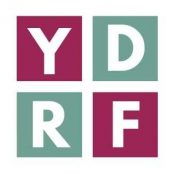
Image: Diagram labelled ‘Wheel of Power/Privilege’ showing the different degrees to which a person can be marginalised or have power over others in society based on their characteristics.
In the centre is the word “power”, and on the outside of the wheel is the word “marginalised”. The categories are:
- Body size, with large on the margins, and slim in the centre;
- Mental health, with vulnerable on the margins and robust in the centre;
- Neurodiversity, with significant neurodivergence on the margins, and neurotypical in the centre;
- Sexuality with lesbian, bi, pan, asexual on the margins, and heterosexual in the centre;
- Ability with significant disability on the margins, and able-bodied in the centre;
- Formal education with elementary education on the margins and post secondary in the centre;
- Skin colour with dark on the margins, and white in the centre;
- Citizenship with undocumented on the margins, and citizen in the centre;
- Gender with trans, intersex and non-binary on the margins and cisgender in the centre;
- Language with non-English monolingual on the margins and English in the centre;
- Wealth with poor on the margins and rich in the centre;
- Housing with homeless on the margins and owns property in the centre.
The Wheel of Privilege shows how the different parts of your identity can give you power over others in society as well as lead you to being marginalised/excluded.
There are a lot of stories of inequality and injustice in the news at the moment, so it seemed like a good time to share this wheel of privilege! I want to invite you to spend a few moments considering the wheel of privilege, if you can, and identify and check your own privileges. Recognise them. Know that they shape your worldview.
To be clear, it’s OK to be you, no one else is called or made to be that. However, this ”youness” comes with baggage that we each need to identify in order to be able to engage with topics that aren’t our experience.
So for example, my experience of life is through the lens of being a disabled, neurodiverse, well educated, white, cisgender, English woman – among other things – and not necessarily in that order. This shapes the way I see the world. Your lens will be different from mine and that is OK.
I think that my wheel of privilege is quite spikey – there are areas in which I am more oppressed, and areas in which I hold power – I wonder what your wheel is like?
I can only speak authentically about my own story. I cannot genuinely and authentically speak on behalf of people who are not me, or pretend to know what life is like. However, I can start from a place of understanding and openness and empathy. Starting from this place of open-listening can help other people to reclaim their agency and power too. I hope that the work of the York Disability Rights Forum can encourage and help disabled people to do this.
Whilst we are all experiencing oppression because of our disability, we need to acknowledge our individual privileges in order to be able to take those lenses off too. This means we are free to really listen to other people’s experiences. We can find out more about other people’s experiences from the people themselves, for example through the media, social media, books and blogs. It is also important to remember that we need to enable people to speak for themselves, instead of us speaking for them, especially in situations where we have more privilege.
So, let’s start from a place of love, openness and honesty. Let’s not start from a place of assuming we know it all. My experience of being a disabled person in York will be vastly different from that of anyone else, but we can come together to make a real difference.

I think it needs two or three more segments; age, perceived Beaty and family support.
There’s so much that could be included isn’t there? Age, percieved beauty, family support, access to reliable transport… There are so many ways in which we can have, or not have, privilege.
Also seems that the categories are only to be considered privileged dependent on context (e.g. location or era). For instance, skin color might privilege one differently depending on where in the world they are located. Education might not be such a privilege in certain regions. Likewise with virtually all of these categories–it depends on the context. So much so that some privileges might be a disadvantage on some occasions.
IOW–the concept of privilege is not very informative–it’s mostly used as a cudgel against people you’re jealous of and resent for something they aren’t responsible for. It’s more of a reflection of inferiority complex than an actual state of reality.
Context does obviously matter and this needs to be part of the self reflection for an individual. However reflecting on which social groups have more or less power and privilege in that particular context is incredibly useful for identifying which groups are oppressed and oppressors. I think it’s important that we note these are social groups. Something often not explicitly stated is that this is about groups and power associated with that group, not with an individual.
Ethnicity is missing from the wheel? It’s strange to miss that one off. Skin colour is not the same as ethnicity.
Good point – that being said there will always, inevitably be things that aren’t included and I think that the person who created the wheel (credited in image) will have intended it as a visual representation to prompt thinking and talking about marginalisation and intersectionality. There’s other versions of the wheel that have been developed by others after the artist created this one.
Based on this wheel I would be considered privileged, yet there is a perceived ethnicity that has caused me to experience much bias that is not represented here.